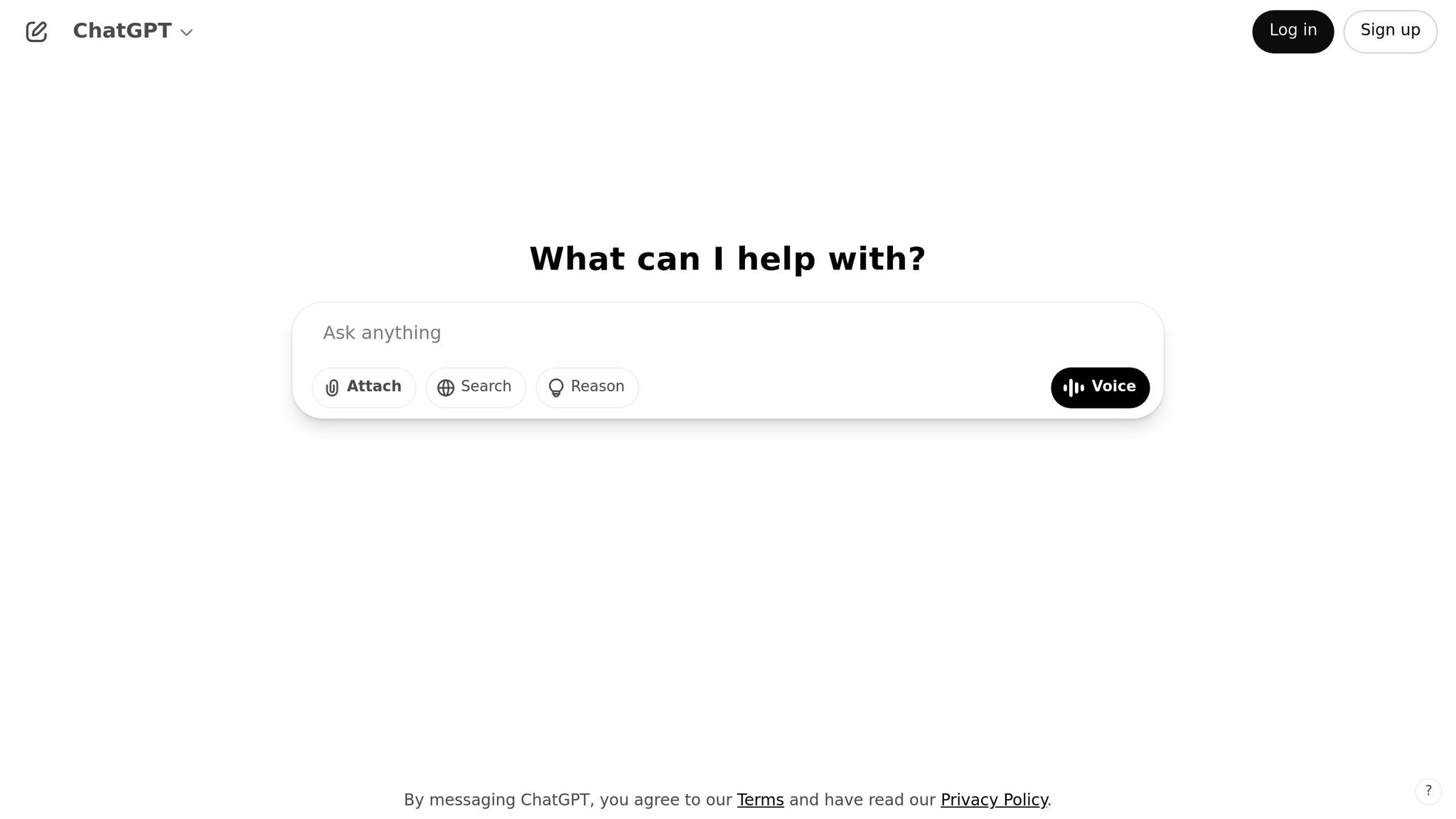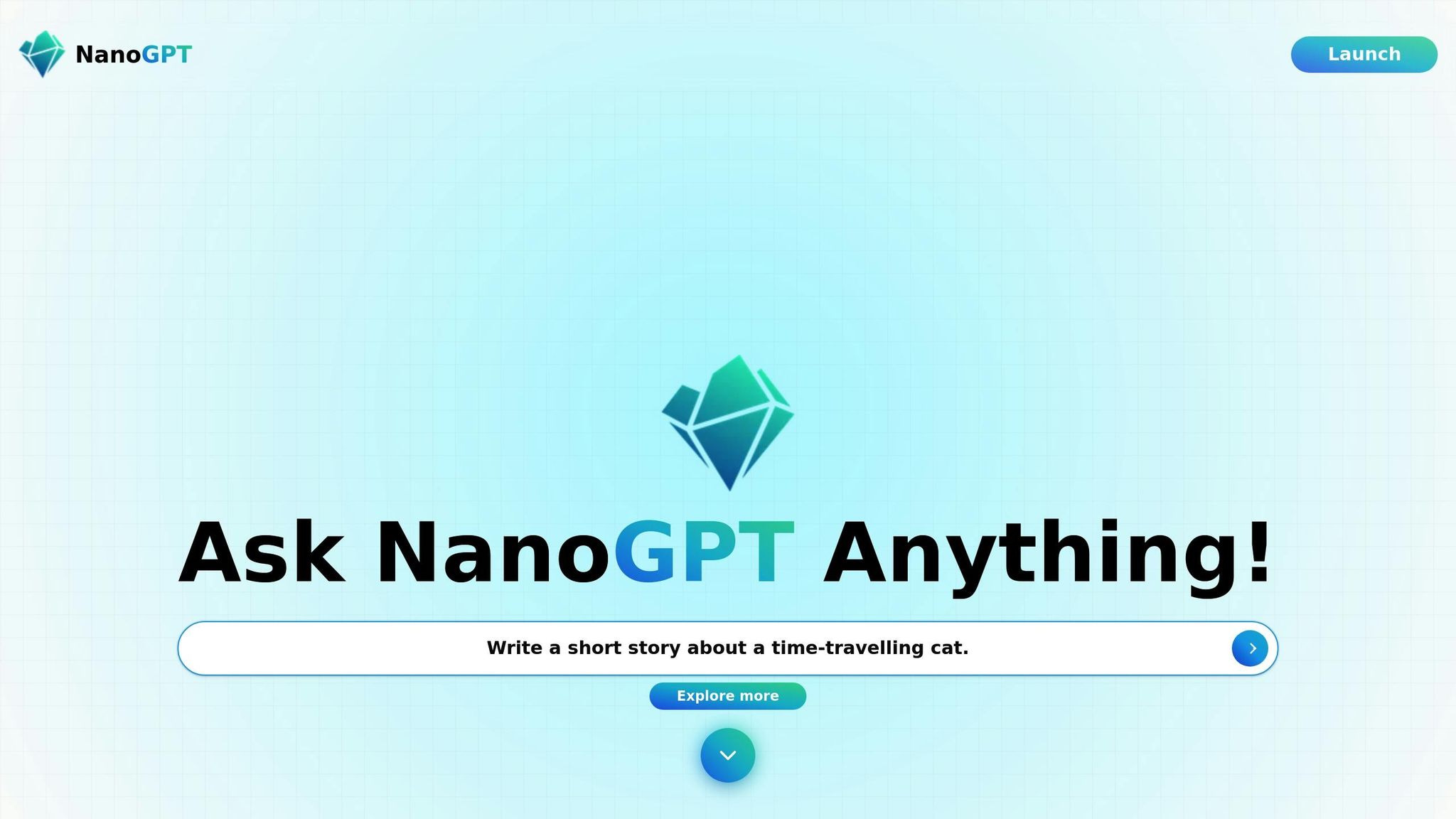Apr 14, 2025
AI tools like ChatGPT and Gemini are transforming decision-making by analyzing data quickly and delivering actionable insights. Choosing between them depends on your specific needs:
| Feature | ChatGPT | Gemini |
|---|---|---|
| Data Types | Text only | Text, images, and mixed formats |
| Best For | Document analysis, coding, research | Visual data, real-time processing |
| Integration | Limited | Google Workspace integration |
| Output Style | Natural language summaries | Structured, organized formats |
Both models are accessible via NanoGPT’s pay-as-you-go platform, which ensures privacy by storing data locally. Use ChatGPT for text-focused tasks and Gemini for diverse, complex data needs.

Understanding what these AI models can do helps clarify how they fit into decision-making tasks. Below is a breakdown of their primary features.
ChatGPT excels at analyzing text and supporting technical and analytical decisions. Here’s what it offers:
Gemini is designed to handle more complex data inputs and outputs, focusing on multimodal analysis and seamless integration. Its standout features include:

Both ChatGPT and Gemini are available through the NanoGPT platform, which offers a pay-as-you-go pricing model. This flexible approach lets teams access these tools without committing to long-term contracts. For added security, NanoGPT ensures user data is stored locally on the user’s device, protecting privacy.
When comparing ChatGPT and Gemini for decision-making tasks, it's clear that each model brings different strengths to the table. ChatGPT is tailored for fast text processing and natural language analysis, while Gemini stands out for its ability to handle diverse input formats. This difference influences how and where each model works best.
ChatGPT shines when quick, straightforward text analysis is needed. On the other hand, Gemini's ability to process multiple data types makes it a better fit for tackling more complex scenarios. Using platforms like NanoGPT, teams can choose the right tool for their needs - ChatGPT for fast text-based decisions, or Gemini for analyzing a broader range of data inputs.
Choosing the right tool depends on the specific task at hand. Both ChatGPT and Gemini have distinct strengths, and NanoGPT provides access to both, making it easier to select the best option for your needs.
ChatGPT is particularly effective for tasks focused on text analysis and language-based processing. Here are some common applications:
If your work revolves around processing and interpreting text, ChatGPT is a strong choice. However, for tasks that involve multiple types of data, Gemini might be a better fit.
Gemini is designed for handling a variety of data types and excels in more complex analytical tasks. It’s particularly useful in the following scenarios:
For organizations dealing with diverse data formats, Gemini offers a powerful solution. Additionally, NanoGPT provides a cost-efficient way to leverage both models. Select the one that best matches your specific data and analysis requirements.
Decide between ChatGPT and Gemini based on what your specific data analysis tasks require. ChatGPT works well for text-focused analysis, while Gemini stands out with its ability to handle multiple data formats and process information in real time. This breakdown can help guide your choice.
NanoGPT provides access to both models through a privacy-first, pay-as-you-go platform that keeps data stored locally.
For tasks like document analysis or generating reports, ChatGPT is a solid choice. On the other hand, if you need to analyze various data formats, including visual data, or require real-time processing, Gemini is better suited. To get the most out of these tools, match their capabilities to your specific decision-making needs.
The future of decision support systems is leaning toward a hybrid model. Organizations will likely move toward seamlessly switching between different AI models depending on the task. This approach, paired with strong privacy measures and cost-efficient accessibility, marks the next step in AI-driven decision support.